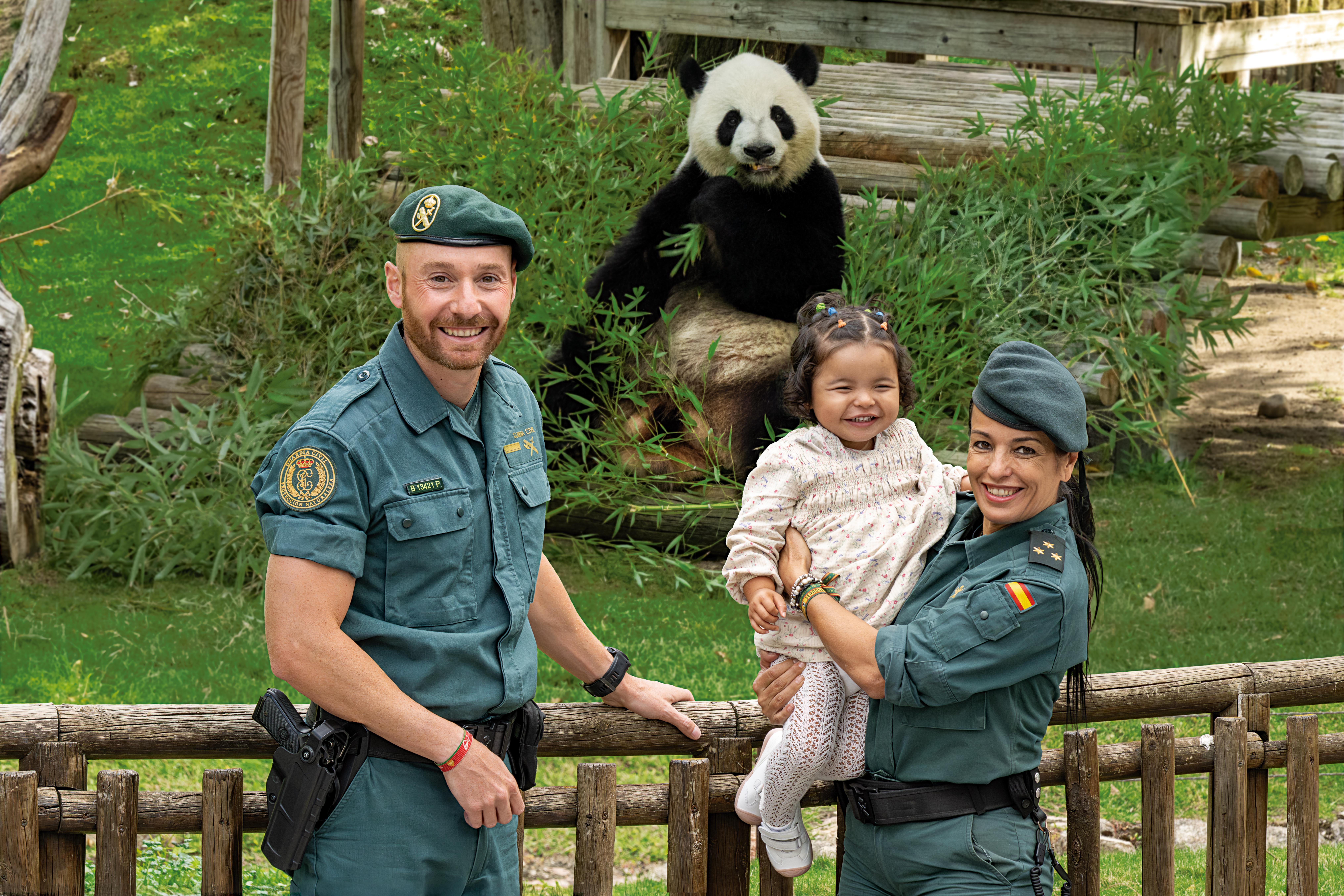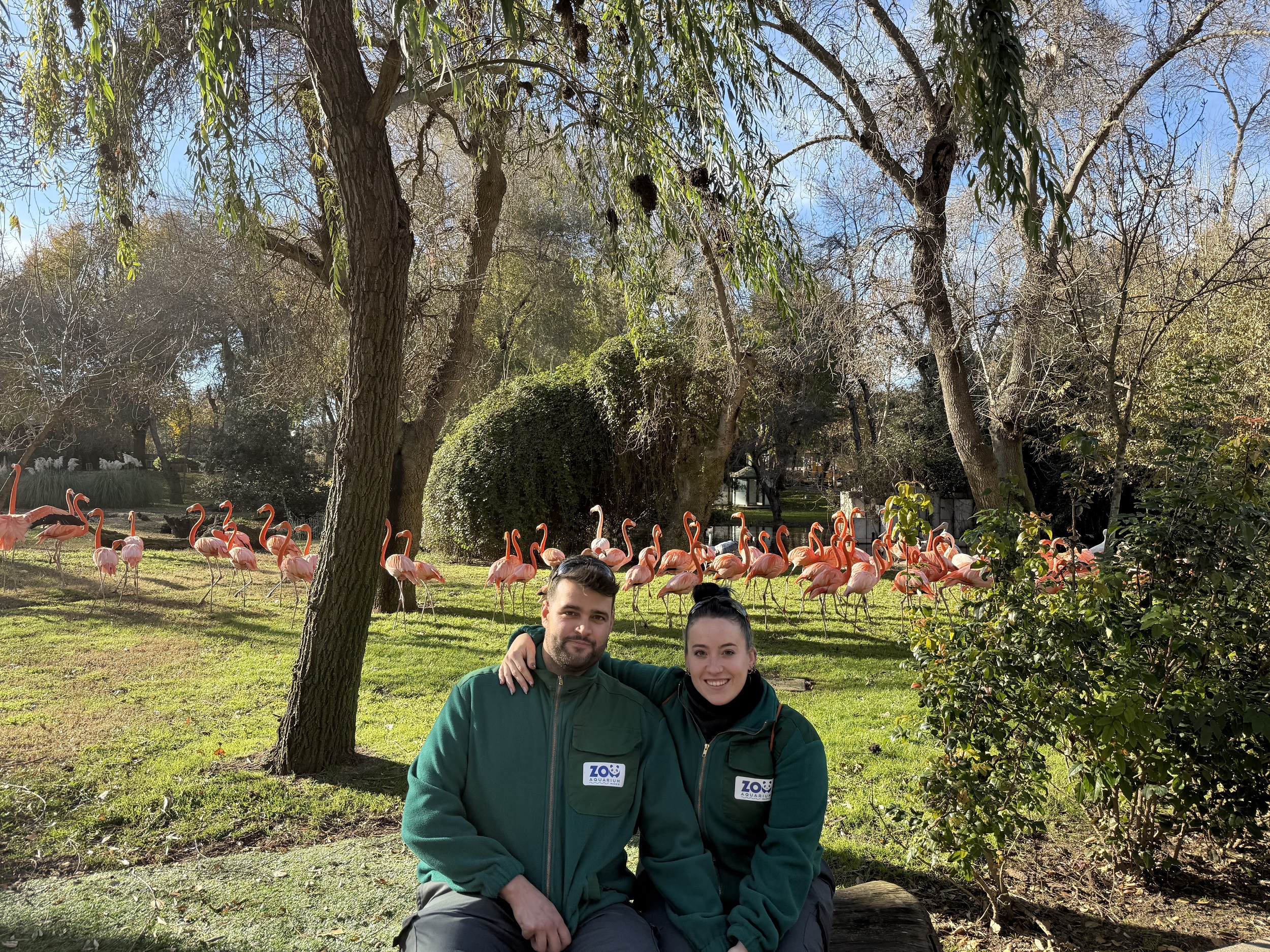
Jesús Fernández: “Without zoos the Biodiversity crisis would be much worse”
A few years ago there were only 1,200 giant pandas left and this species was one of the most threatened in the planet. Currently, their population has reached 2,000 individuals. Out of the five different rhino species on Earth, the white rhino has the largest popullation, concentrated mainly in the south of Africa, and reaching over 20,000 indivuduals. These are only two projects in which the Parques Reunidos Foundation is activily collaboration in order to protect and preserve species which would otherwise be sentenced to extinction.
“Maybe one of the most important problems that humanity is currently facing is the loss of biodiversity, and we area all allies in protecting it. In an increasingly urban world which is loosing its connection with nature, zoos are key social actors in preserving biodiversity”
Jesús Fernández – President, Parques Reunidos Foundation
Such were Jesús Fernández’s words during the first Biodiversity & Species Conservation Experts Focus Group meeting, lauched by this very Foundation to promote a greater collaboration between different institutions, as well as to foster and strengthen the role of zoos as key actors in the biodiversity effort. Fernández has a Ph.D. in Veterinary Sciences from the UAB and is the President of the Parques Reunidos Foundation.
PARQUES REUNIDOS FOUNDATION’S COMMITMENT TOWARDS CONSERVATION
It’s not without its reasons that ecosystem conservation and the protection of threatened species are at the center of Parques Reunidos Foundation’s activities. In fact, without the work performed at zoos, the current biodiversity crisis would be much worse. Fernández reminds us that zoos collaborate very actively in a variety of animal conservation initiatives, both in situ and ex situ, and with projects such as the Mediterranean Monk Seal program or the Giant Panda reproduction program. Their role is to provide with technical and human support, an to contribute in preserving nature, forests and other protected areas where these species live.
The President of the Parques Reunidos Foundation also pointed out the exceptional atmosphere during the first Expert Focus Group meeting, which will continue its work during the next few months. Its objective, he stated, is to develop a critical and accurate opinion from the outside “knowing what people think of us and how we can improve”, strengthening the Foundation’s commitment with society and with the environment in line with the “Parques Reunidos’ Spirit. “We are commited and decided to take the commitment further”.
For this reason, Fernández is sorry to see the role of zoos undermined by other debates related to the environment and to animal exploitation. “Zoos share a social concern about conservation of biodiversity and we want to collaborate in the most active and efficient way with all other institutions, in order to work together for the same goal”, claims the President of the Parques Reunidos Foundation.
BIODIVERSITY EXPERTS FOCUS GROUP
The Biodiversity Experts Focus Group is formed by:
- Enrique Alonso, Permanent Member of Spanish State Council; UNESCO Chair on Spatial Design and the Environment; Honorary Researcher at the Franklin-UAH Institute and the Monterey International Institute of California;
- Alberto Díez, InfoZoos spokesperson;
- Pablo Fernández de Larrinoa, Director of the Fundación CBD-Hábitat Mediterranean Monk Seal Conservation Program;
- Jesús Fernández, President of the Fundación Parques Reunidos;
- Luis Mariano González, head of Conservation Action at the General Sub-directorate on Biodiversity and Natural Environment, Ministry for Ecological Transition;
- Pedro Lorenzo, Dean of the Veterinary Science School, Universidad Complutense de Madrid;
- Xavier Manteca, Professor, Animal and Food Science Department, School of Veterinary Science of the Universidad Autónoma de Barcelona, and the group’s moderator;
- Odile Rodríguez de la Fuente, General Director and President of the Fundación Félix Rodríguez de la Fuente;
- Julián Santiago, Research Professor at the Instituto Nacional de Investigación y Tecnología Agraria y Alimentaria (INIA);
- Andrea Torres, biologist for InfoZoos;
- Felipe Vilas, President of the Madrid Official College of Veterinarians.
At the international level, the European Union has pointed out that the knowledge about biodiversity must be a starting point to establish policies that would foster its protection. Within the framework of the Strategy for Biodiversity until 2020, the EU recognizes that the loss of biodiversity entails -along with climate change- the greatest environmental threat that we face today. For this reason, the EU has set a main goal in this strategy, which is to stop the loss of biodiversity and the degradation of ecosystems within the European Union, as well as increasing the EU contribution to fighting global biodiversity loss.
Recent entries
-
Faunia receives recognition from Universidad Complutense de Madrid for its contribution to training future veterinarians

-
Belize Arrives in Faunia: A New Chapter in the Conservation of the Antillean Manatee

-
When Inclusion and Nature Came Together

-
“Animal Welfare Starts with Us”: A Conversation with the Zoo Aquarium Madrid Team


